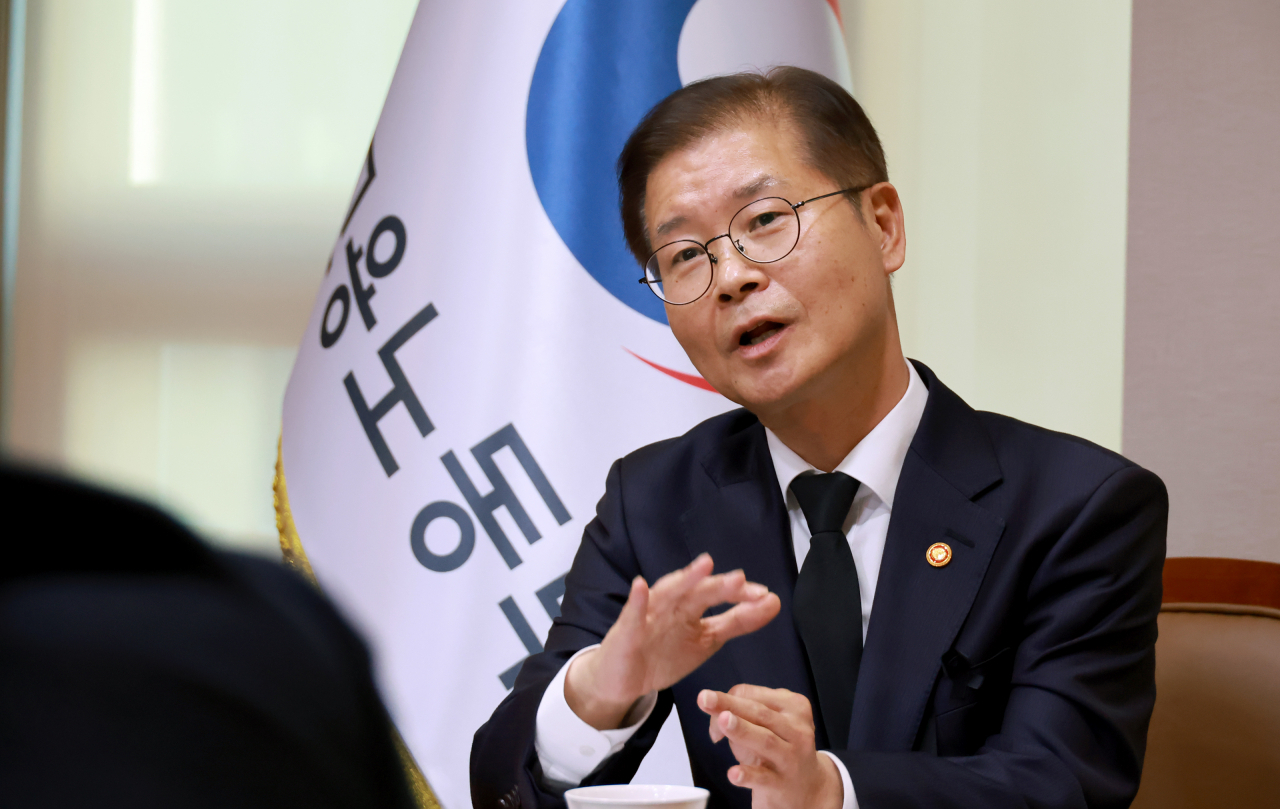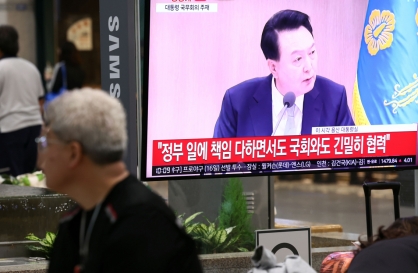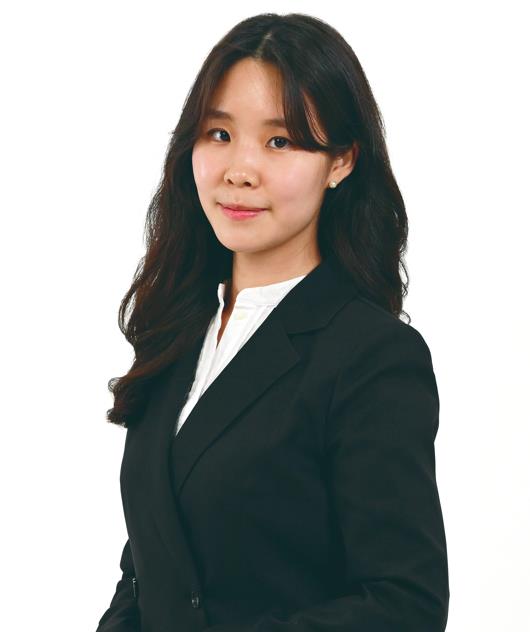Korea mulls visa extensions, clarification of 'dangerous jobs'
Ensuring safe work environment for both local and foreign laborers is crucial, says labor minister
By Lee Jung-younPublished : Dec. 11, 2022 - 15:55

The Korean government is considering a policy drive to ease the burden of foreign workers and improve the work environment here through extending visas and adding flexibility to the existing quota system, Labor Minister Lee Jung-sik said in an interview with The Korea Herald.
Stressing that the ministry’s focus is on the welfare of both foreign and local workers, Lee cited extending the E-9 visa -- widely used by foreign workers -- as an example of one of the policy changes under consideration. Foreign workers with the E-9 visa must leave the country four years and 10 months after they arrive in Korea, even if they are to extend their stay.
"We plan to review the policy to extend the length of stay for skilled foreign workers who have worked for a long time with other ministries," said Lee in a written interview. Such a policy change requires consultation with other ministries such as the Justice Ministry, which holds authority on immigration and visas.
The labor minister said he supported his ministry's announcement on Oct. 25 that it would allow a record-high 110,000 foreign workers to enter the country through the E-9 visa next year. The decision was made to resolve a severe labor shortage at industrial sites and the complaints saying that workers were not assigned enough to several worksites due to quotas.
The Labor Ministry is also carefully overlooking foreign workers' welfare and work environments.
"From January 2021, if illegal temporary buildings are provided as accommodations for foreign workers, the employer is banned from hiring foreign workers. And if unfairly treated foreign workers wish, they are allowed to change their workplaces."
"Also, a business which has had a fatal accident on its work site will not be allowed to hire foreign workers. From next year, all businesses must sign up for safety insurance to grant employment permission -- even an agricultural and fisheries household with less than five workers," Lee added.
Regarding the quota system, which limits the number of foreign workers per industry, Lee explained that it is an inevitable system to guarantee jobs for domestic workers. “We need to examine how the introduction of foreign manpower without quotas will affect domestic workers. But we are going to respond flexibly toward the situation, such as allowing 10,000 workers among 110,000 foreigners to enter Korea next year to work regardless of industry," said Lee.
As both local and foreign workers are still exposed to various industrial accidents, the Labor Ministry has taken various measures this year to ensure workers' safety.
The ministry is planning to draft a manual that clearly defines what dangerous jobs are to protect workers’ right to deliberately stop working if they feel like their lives are in danger. "The right to stop working at a dangerous job is a key means to secure workers' lives and safety. Many countries including the United States, Germany and Japan already ensures such a right, and the International Labor Organization also encourages it."
"Some companies in Korea are already accustomed to such a right, but we plan to distribute an official manual to set the exact standard of ‘dangerous job,’ which sometimes has caused disagreements between workers and companies," said Lee.
Such a policy drive comes amid growing calls to add clarity to the Occupational Safety and Health Act, which vaguely defines what dangerous jobs are. There have been a number of legal disputes between labor and management on the legal interpretation of life-threatening work environment and processes. Often, these disputes result in laborers losing their cases, as they have no guideline to support their arguments that they were facing “pressing danger” in a specific situation.
Such a move is being made as a part of a roadmap to revise the Serious Accidents Punishment Act announced by the government on Nov. 30. The policy drive is aimed at shifting the focus from punishing companies to encouraging a self-regulatory prevention system to ensure work safety in advance.
Citing examples of other countries that have successfully reduced industrial accidents, Lee said the early version of the Serious Accidents Punishment Act, implemented in January, has failed to show meaningful results.
"Since the 1970s, major developed countries have already implemented policies which focused on prevention, not on post-regulation or punishments. And they did reduce industrial accidents, establishing autonomous safety systems," Lee said.
Korea’s rate of fatalities per 10,000 workers is 0.43 as of 2021, while the Organization for Economic Co-operation and Development average is 0.29. The government plans to reduce the rate of fatalities per 10,000 workers to the OECD average by 2026, according to Lee.
Workers and management at companies should jointly carry out “risk assessments” of a self-regulation system, he said.
The minister said that both executives and workers should consider themselves responsible for preventing safety accidents. However, he stressed that emphasizing proactive prevention does not mean neglecting follow-up measures after accidents.
"The roadmap also includes emergency planning to secure the critical golden hour immediately after an accident. We plan to establish an emergency system to share information,” Lee added.
Lee, President Yoon Suk-yeol's first labor minister, is a labor expert and activist who built his career at the Federation of Korean Trade Unions for 26 years before entering office.
Yoon's choice in tapping Lee was seen as unusual, as Lee has represented unionized workers for decades. Lee also worked at a government-led trilateral body tasked with reaching an agreement on shortening work hours and increasing the minimum wage under the previous liberal-leaning Moon Jae-in administration.






![[From the Scene] Monks, Buddhists hail return of remains of Buddhas](http://res.heraldm.com/phpwas/restmb_idxmake.php?idx=644&simg=/content/image/2024/04/19/20240419050617_0.jpg&u=20240419175937)








![[From the Scene] Monks, Buddhists hail return of remains of Buddhas](http://res.heraldm.com/phpwas/restmb_idxmake.php?idx=652&simg=/content/image/2024/04/19/20240419050617_0.jpg&u=20240419175937)

![[KH Explains] Hyundai's full hybrid edge to pay off amid slow transition to pure EVs](http://res.heraldm.com/phpwas/restmb_idxmake.php?idx=652&simg=/content/image/2024/04/18/20240418050645_0.jpg&u=20240419100350)

![[Today’s K-pop] Illit drops debut single remix](http://res.heraldm.com/phpwas/restmb_idxmake.php?idx=642&simg=/content/image/2024/04/19/20240419050612_0.jpg&u=)